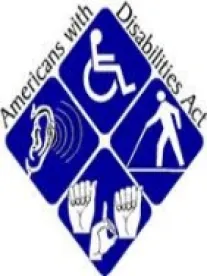On December 8, 2011, the Ninth Circuit Court of Appeals held that a disabled teacher who failed to meet the minimum requirements for her position was not a “qualified individual” under the Americans with Disabilities Act (“ADA”), and that her employer, therefore, was not required to accommodate her disability. This decision appears to be positive reinforcement that employers are not obligated to accommodate individuals who cannot perform the applicable job duties.
In Johnson v. Board of Trustees of the Boundary County School District No. 101, No. 10-35233, 2011 U.S. App. LEXIS 24305 (9th Cir. Dec. 8, 2011), plaintiff, a special education teacher in Idaho with a history of depression and bipolar disorder, sued her school district employer under the federal ADA for failing to reasonably accommodate her disability. Plaintiff argued that the school district failed to reasonably accommodate her disability in violation of the ADA, when it refused to apply for a provisional authorization from the state of Idaho to allow her to teach for another school year, even though she lacked an Idaho-mandated valid teaching certificate. Plaintiff would not have had a valid certificate by the start of the school year because she did not take the three semester hours of professional development training that would count for college credit required to renew the teaching certificate. Notably, during the summer preceding the applicable school year and the expiration of her valid certificate, Plaintiff suffered a “major depressive episode” that prevented her from obtaining the credits. Notwithstanding these facts and Plaintiff’s request, the school district ultimately refused to apply for provisional authorization from the state to allow her to teach for another year even though she lacked her teaching certificate. In response to the school district’s motion, the U.S. District Court of Idaho entered summary judgment against plaintiff, and the Ninth Circuit affirmed.
The Ninth Circuit held that plaintiff was not “qualified” for the teaching position under the ADA, and that the school district was therefore not required to accommodate her disability. In reaching its ruling, the Ninth Circuit considered the ADA definitions and the Equal Employment Opportunity Commission’s (“EEOC”) regulations interpreting the ADA. Specifically, the ADA prohibits employers from discriminating “against a qualified individual with a disability” because of that disability. 42 U.S.C. § 12112(a) (emphasis added). Meanwhile, the EEOC’s regulations explain that a “qualified individual with a disability” is an individual “who [1] satisfies the requisite skills, experience, education and other job related requirements of the employment position such individual holds or desires, and [2]who, with or without reasonable accommodation, can perform the essential functions of such position.” 29 C.F.R. § 1630.2(m). Accordingly, the Ninth Circuit considered the first prong of the EEOC’s definition of “qualified individual” – which makes no reference to reasonable accommodation – and explained that, “[i]f the EEOC had intended to require employers to provide reasonable accommodation to ensure that disabled individuals can satisfy the job prerequisites, . . . it presumably could have said so[.]” After also considering the EEOC’s interpretive guidance on the ADA, the Ninth Circuit concluded that an employer needs to reasonably accommodate only an individual who “independently satisfies the job prerequisites.”
The Ninth Circuit, meanwhile, was not persuaded by an amicus curiae brief the EEOC filed in support of plaintiff’s position. The EEOC contended that a “qualified individual” under the ADA includes someone who could satisfy the minimum job requirements with reasonable accommodation. The Ninth Circuit disagreed, holding that the reasonable accommodation obligation applies only to job requirements that are “facially discriminatory” and have the effect of discriminating on the basis of disability. The Ninth Circuit held that this standard did not apply in the instant action because plaintiff had never claimed that the school district’s requirements were facially discriminatory.
Judge Richard A. Paez dissented in part. Although he acknowledged that, “[t]he majority’s interpretation [of the ADA] would not be an unreasonable reading of the regulation in a vacuum,” he contended the majority should instead have deferred to the EEOC’s interpretation of the ADA set forth in its amicus brief, which he deemed “not plainly erroneous, irrational, or inconsistent with either the ADA or the EEOC’s regulations and interpretive guidance.”
Johnson would appear to be good news for employers. The decision seems to support the argument that an employer has no obligation to reasonably accommodate an employee or job applicant who does not meet the minimum job requirements, so long as those requirements are not facially discriminatory.




 />i
/>i


